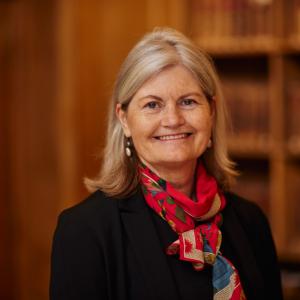Bonavero Discussion Group: Book Discussion - 'Free Speech as Civic Structure: A Comparative Legal Analysis of Common Law Constitutionalism and the Centrality of Judges to Securing Expressive Freedom'
Ronald J. Krotoszynski, Jr - John S. Stone Chair, Director of Faculty Research, & Professor of Law, University of Alabama School of Law

Just how important is text to securing the freedom of speech? As it turns out, far less important than judges. A comparative legal analysis of the free speech jurisprudence of the highest courts in Australia, Israel, South Africa, the United Kingdom, and the United States demonstrates with convincing clarity the (very) limited relevance of constitutional text to the scope and vibrancy of freedom of expression within a particular polity. Despite an iconic constitutional text, namely the First Amendment, the U.S. Supreme Court has, in practice, routinely ignored the First Amendment’s actual text in favor of a dynamic and purposive jurisprudential approach that treats all four of the amendment’s expressive freedom clauses (the Speech, Press, Assembly, and Petition Clauses) as together standing for a more general constitutional rule against government censorship of speech. This holds true in other democratic nations as well. Thus, in Australia, Israel, South Africa, and the United Kingdom, the presence of relevant constitutional text (South Africa), relevant statutory text (the United Kingdom), in addition to the complete absence of relevant constitutional text (Australia) or lack of a formal, entrenched constitution as such (Israel) all make little to no difference to free speech rights on the ground. Instead, the strength or weakness of free speech protections depends critically on the willingness and ability of judges to police government efforts to censor speech—in conjunction with the salience of speech as a sociolegal value within the body politic. Thus, a legal system featuring independent courts, ideally vested with a power of judicial review, but that lacks a written free speech guarantee, will likely feature broader protection of the freedom of expression than a legal system with a written guarantee that lacks independent courts. Across jurisdictions, text or its absence invariably serves as, at best, a starting point for judicial efforts to protect speech. Judges, engaged in a common law enterprise, matter far more than text, and common law constitutionalism constitutes the global rule rather than the exception.
The talk will share the major findings of Free Speech as Civic Structure: A Comparative Analysis of How Courts and Culture Shape the Freedom of Speech (Oxford University Press 2024). You can find out more about it at the University of Oxford Press website.
About the Author
Ronald J. Krotoszynski, Jr
John S. Stone Chair, Director of Faculty Research, & Professor of Law, University of Alabama School of Law

Ronald Krotoszynski earned his B.A. and M.A. from Emory University and J.D. and LL.M. from Duke University where he was articles editor for the Duke Law Journal and selected for Order of the Coif. He clerked for the Honorable Frank M. Johnson, Jr, of the United States Court of Appeals for the Eleventh Circuit and was an associate with Covington & Burling, D.C. Prior to joining the faculty at the University of Alabama School of Law, Professor Krotoszynski served on the law faculty at Washington and Lee University and, prior to that, on the law faculty of the Indiana University School of Law-Indianapolis. He also has taught as a visiting professor at the Washington and Lee University School of Law, the Marshall-Wythe School of Law at the College of William and Mary, the University of Washington-Seattle School of Law, Florida State University College of Law, and Brooklyn Law School. Krotoszynski has held appointments as a visiting scholar in residence at the University of Washington-Seattle School of Law, the Seattle University School of Law, and the Lewis and Clark School of Law.
Professor Krotoszynski’s research focuses on constitutional law, First Amendment law, telecommunications law, administrative law, and comparative constitutional law. He frequently writes and lectures on topics related to freedom of expression and how law and culture inform speech and law particularly from a comparative law perspective. Krotoszynski is the author of several books and dozens of law review articles (which have appeared in leading law reviews including the Yale Law Journal, the Duke Law Journal, the Michigan Law Review, and the UCLA Law Review). His most recent book is Free Speech as Civic Structure: A Comparative Analysis of How Courts and Culture Shape the Freedom of Speech (Oxford University Press 2024). He is also the author of The Disappearing First Amendment (Cambridge University Press 2019) and the co-author of First Amendment: Cases and Theory (Aspen Publishers, 4th ed. 2022) (with Lyrissa Lidsky, Caroline Mala Corbin, and Timothy Zick).
Discussant:
Jacob Rowbottom is a Fellow of University College, Oxford, and Professor of Law in the Faculty of Law, University of Oxford.
Chair:
Kate O'Regan is a Fellow of Mansfield College, Oxford, Professor of Human Rights Law in the Faculty of Law, University of Oxford, and the the inaugural Director of the Bonavero Institute of Human Rights


